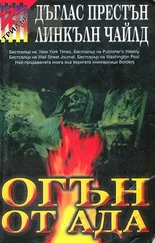The chopper thudded low over the dark ocean, the glow of the instrument panel providing the only light. Gladstone was sitting on the flight deck, cuffed back to back with Pendergast, bound with additional leg cuffs and zip ties. The numb horror of what had just happened was beginning to wear off, and her analytical mind was starting to wake up again. The brutality of what had been done to Lam terrified and sickened her, but equally frightening was the organization, the numbers, and the quiet professionalism. These were not a bunch of common criminals. With their insignia-stripped camo uniforms, whitewall haircuts, automatic weapons, and terse communications, they felt like military.
There was only one possibility that made sense: somehow, their investigation had cut too close to the bone — and triggered a massive response.
But the apparent leader of this team, the woman who had greeted Pendergast so sarcastically, was something quite different. She, too, had an air of discipline and precision about her, but it was at odds with her aristocratic face, mane of rich mahogany hair, brown eyes, and civilian dress. The others were kitted out in body armor, helmets, night-vision gear, and assault weaponry: all she had was a string of pearls.
Who in God’s name would wear a string of pearls on a mission like this?
Pendergast was uncommunicative even in normal times, but he hadn’t spoken a word since the capture. She couldn’t see his face and she wondered what the hell he was thinking. She tried to steel herself for the worst. It seemed unlikely they were going to get out of this thing alive. These people were deadly serious, they were ruthless, and they seemed to be involved in secret work that — at the very least — included the mutilation of over a hundred people. She was no closer to understanding that brutal fact than ever.
The chopper banked, and she could see they were just reaching land again, as the scattered lights of a coastal town passed by. They headed inland, away from the lights, into a vast, stormy darkness.
As he pulled out of the car rental lot at the Tallahassee airport, Special Agent Coldmoon resisted the urge to stomp on the accelerator. He knew where he wanted to go, but he didn’t know how to get there, and he needed to take a moment to map his route and — just as important — organize his thoughts. He stopped in a sandy turnout just beyond the airport and took out his cell phone, firing up Google Maps again and zeroing in on the location of the old sugarcane processing plant. It stood about a quarter mile from the banks of the Crooked River, in the middle of a large, uninhabited area with the crazy name of Tate’s Hell State Forest.
It was a straight shot to the coastal town of Carrabelle, an hour and fifteen minutes away. From there, he’d have to turn north on Highway 67, skirting the edge of Tate’s Hell, and find a way in. But there didn’t appear to be any marked roads into the forest, beyond what looked like a few old tracks, overgrown and probably closed off. Presumably they had led to moonshine stills or something else he’d rather not know about. He could also see the extensive outline of the sugar plant, with what looked like two perimeter fences and a gate. But it was hard to tell where the road passing through the gate originated. He was just going to have to wing it.
With the jeep still idling, he reached back and unzipped his traveling bag. He pulled out the marine “butt pack” in woodland green camo he’d prepared for the trip to Guatemala, his FBI radio, Ka-Bar knife, and a pair of cuffs. Working fast, he yanked off his jacket, checked his Browning, found it clean, and reholstered it. He slipped two additional magazines into the knapsack, along with the knife, cuffs, water bottle, parachute cord, flashlight, binocs, and a rain shell. On second thought, he removed the cuffs — unnecessary weight.
The place was likely to be fenced and gated. Damn, if only he had wire or bolt cutters. He felt his heart racing as he thought about what might be happening to his partner — assuming he was still alive. But he tried to reassure himself by focusing on Pendergast’s resourcefulness. The man had as many lives as a cat: he’d seen it for himself.
He lowered the windows, breathing deeply of the muggy air, trying to clear his head. A storm was coming for sure, but he hoped to make good time before it hit.
If you go in there without me, you’re going to regret it — regret it severely . Constance’s words, spoken with conviction, still rang in his head. Was that a threat? It sure sounded like one. Coldmoon had heard a million threats in his life... but this one, he sensed in his bones, wasn’t idle at all. That outrageous bitch would carry it out — he knew she would.
Those thoughts were for later; right now, he had to focus on one thing: saving his partner. Leaving the radio on the seat next to him, ready to call off any cops who tried to pull him over, he gunned the engine, spinning the wheels in the gravel as he rejoined the road. He picked up speed, accelerating steadily, the wind roaring in the open window. The map said an hour and fifteen to Carrabelle, but he had to do better. The only problem was that the Jeep, designed for off-road travel, wasn’t nearly as fast as he liked. He was able to push it up to about a hundred, but at least the traffic on Route 319 south was light and he could maintain that speed in the fast lane.
The land on either side of the road was flat and featureless. Lightning flickered on the distant northern horizon behind him. Within forty minutes, making good time, he bypassed Carrabelle, blew past a gigantic prison, and merged onto Highway 67. This was an even lonelier road, a straight-as-an-arrow two-lane highway running through a scrubby area of abandoned slash pine plantations, interspersed with cypress swamps. The sky was now covered with dark clouds and the wind was picking up, the trees on either side of the road thrashing and swaying.
He passed a weather-beaten sign indicating he was entering Tate’s Hell State Forest. And hell was exactly what it looked like — swampy, dense, and unsettlingly dark. In another ten miles he would have to start looking for a road going west into the forest, toward the old sugar plant. He slowed down, passing a couple of logging roads blocked with berms and dense brush. Finally, he came to what appeared to be a better-maintained road, heading off at right angles to Highway 67. It, too, was blocked — this time by a metal pipe gate, too heavy to ram through, with a barbed wire fence running on either side. He stopped and, shining his headlights down the old road, examined the ground. It was covered with weeds, but it nevertheless looked drivable. And it was headed in the direction he wanted.
He got out and walked along the barbed wire fence to a spot where the trees were spaced wide enough for him to drive through. He returned to the Jeep, put it in four-wheel drive, eased it down the highway shoulder, and then put the hammer down. The car hit the fence, which sprang apart with a satisfying twang. He maneuvered the Jeep through the trees until he reached the road. It ran in a broad curve into the dark forest.
He stopped to check his GPS. He only had one bar and felt pretty sure he was going to lose that, too, so he took screenshots of the Google Maps images showing the web of old logging roads leading in the direction of the sugar plant and stored them for future reference.
As he drove on, the road became a nightmare, gullied by rain, with loose rocks, potholes, and stretches of weeds taller than his Jeep’s hood. He drove as fast as he dared, hardly able to see where the road went, half-blinded by the glare of his own headlights reflecting off the wall of weeds in front of him. A few times he almost got caught in muddy spots, but thanks to the Jeep he bulled his way through even the worst muck holes. Growing up on the rez, Coldmoon had experienced his share of horrendous dirt roads, and he had an innate sense of how to handle them. It wasn’t that different from driving in fresh snow. The number one rule was to keep going, never stopping or easing up, powering through.
Читать дальше
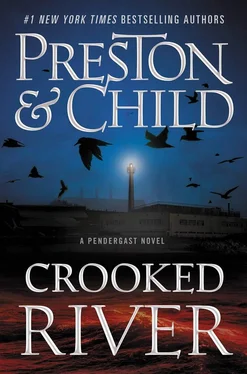
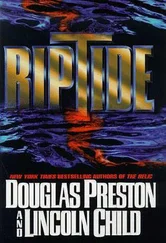
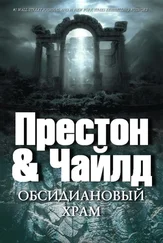
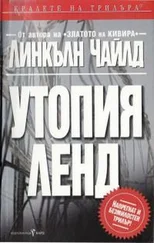
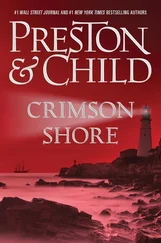
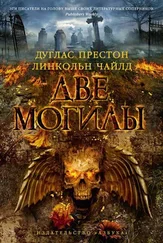
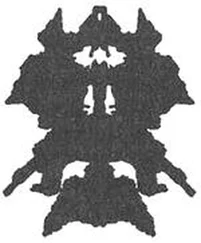
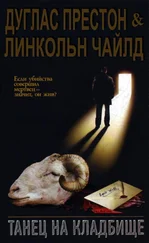
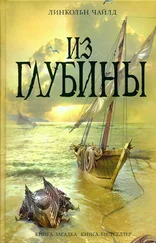
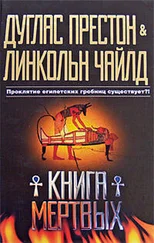
![Линкольн Чайлд - Стихи для мертвецов [litres]](/books/396536/linkoln-chajld-stihi-dlya-mertvecov-litres-thumb.webp)
